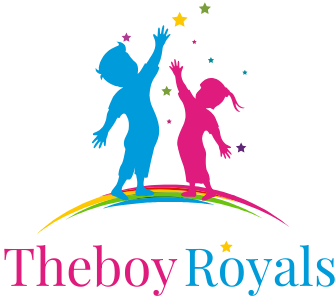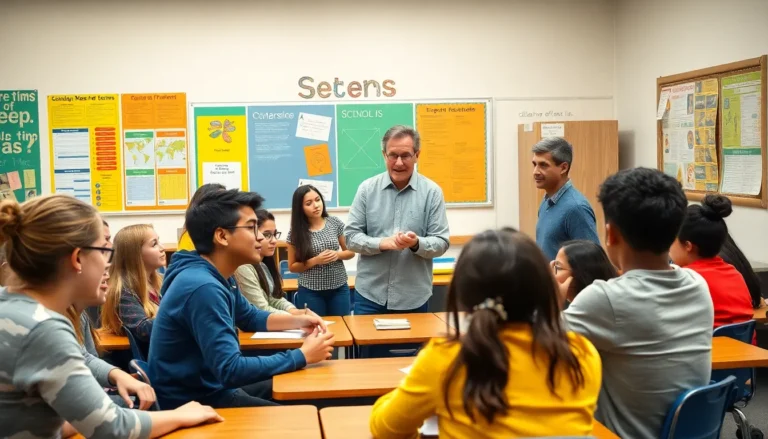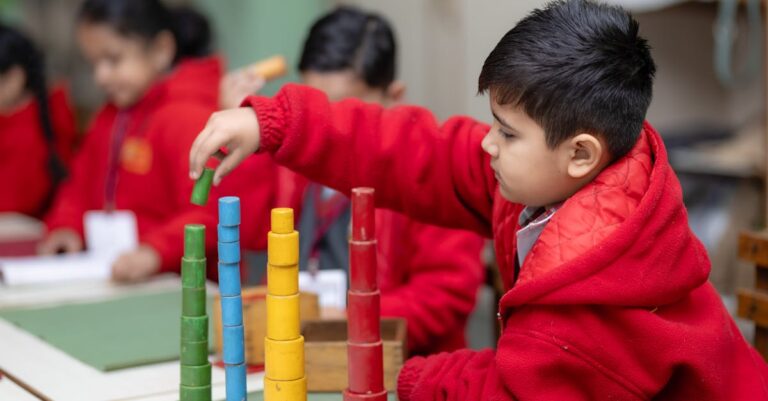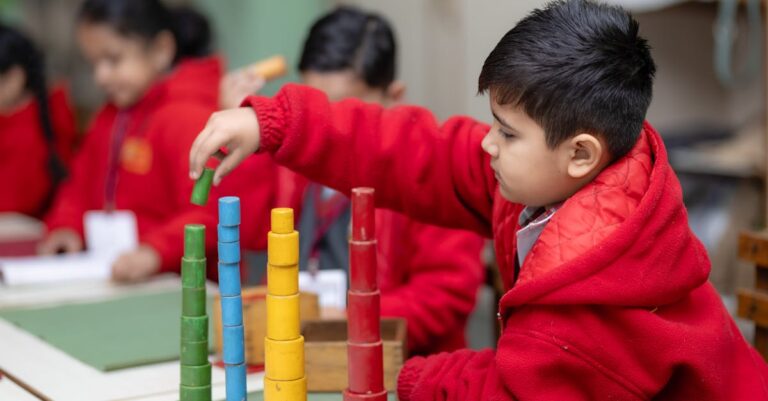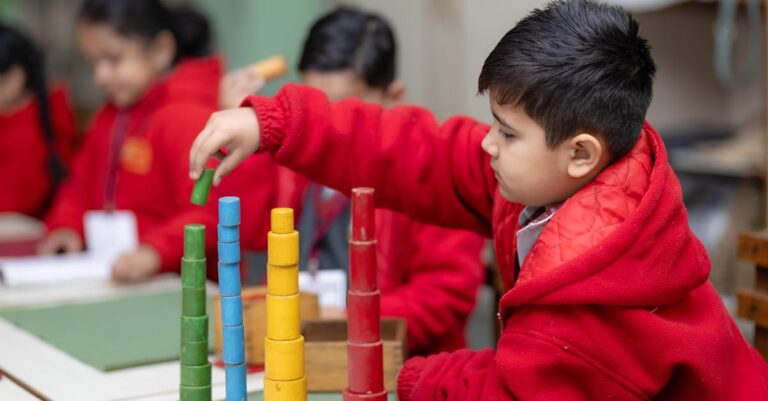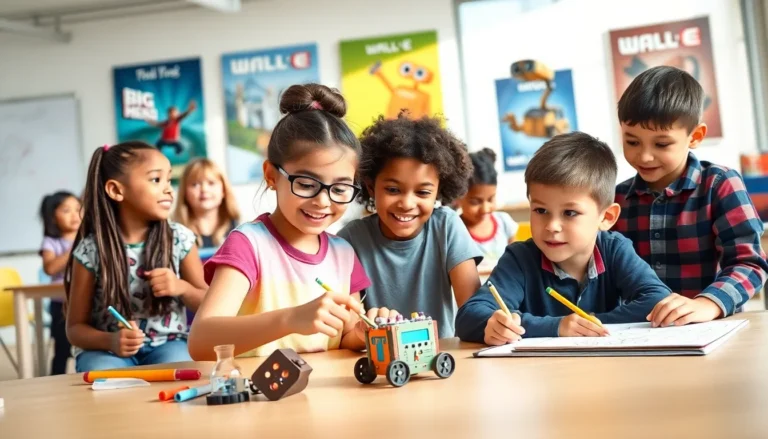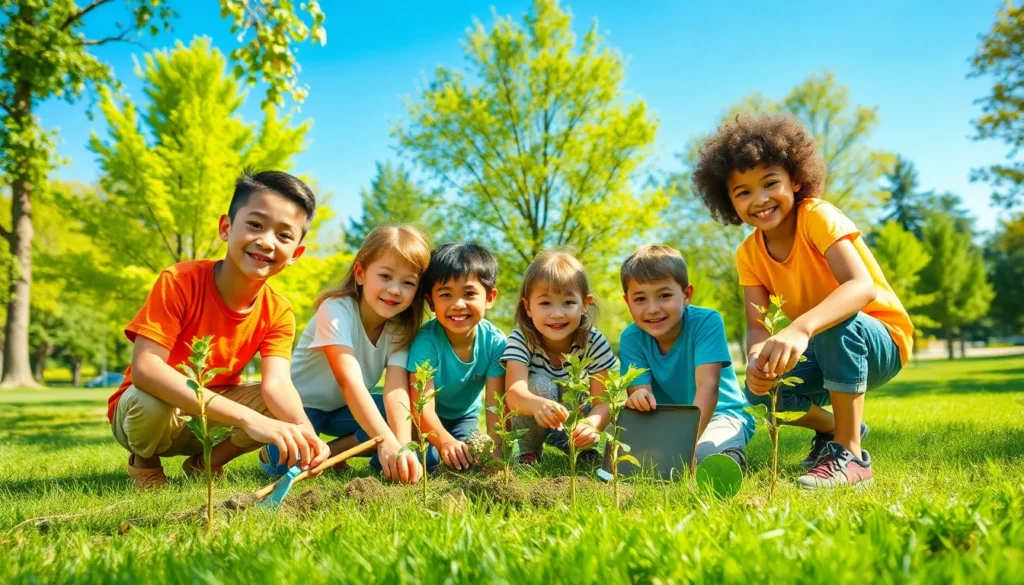Table of Contents
ToggleIn a world where environmental challenges loom large, instilling a love for nature in kids is more important than ever. Ecology kids are the future stewards of our planet, equipped with the knowledge and passion to tackle issues like climate change and biodiversity loss. By engaging young minds in ecological practices, parents and educators can empower them to make a difference.
From planting trees to exploring local ecosystems, fostering an appreciation for the environment can be both fun and educational. Activities that promote ecological awareness not only spark curiosity but also cultivate a sense of responsibility towards the Earth. As these young ecologists learn about their surroundings, they develop the skills needed to protect and preserve the natural world for generations to come.
Understanding Ecology Kids
Understanding “ecology kids” involves recognizing their unique connection to the environment. “Ecology kids” actively engage with their surroundings and demonstrate awareness of ecological issues. Activities such as tree planting and monitoring local wildlife foster this connection.
Key Characteristics of Ecology Kids
- Curiosity: Ecology kids exhibit a strong desire to learn about nature, asking questions about ecosystems and wildlife.
- Responsibility: They display a sense of duty to protect the environment and participate in sustainable practices.
- Community Involvement: Ecology kids often join local conservation efforts or participate in community garden projects.
Activities for Ecology Kids
- Outdoor Exploration: Nature walks enable children to observe plants and animals in their natural habitats.
- Environmental Projects: Participating in local clean-up events helps children understand the importance of maintaining clean environments.
- Educational Workshops: Workshops on recycling or composting educate children on sustainable living practices.
Benefits of Nurturing Ecology Kids
- Critical Thinking: Engaging with ecological topics enhances children’s analytical skills, enabling them to solve environmental problems.
- Teamwork: Collaborative projects build teamwork skills as children work together towards common goals.
- Empowerment: Understanding their impact on the environment empowers children to advocate for positive change.
Recognizing the traits and activities associated with ecology kids encourages a generation that values and protects the planet.
Benefits of Engaging Kids in Ecology
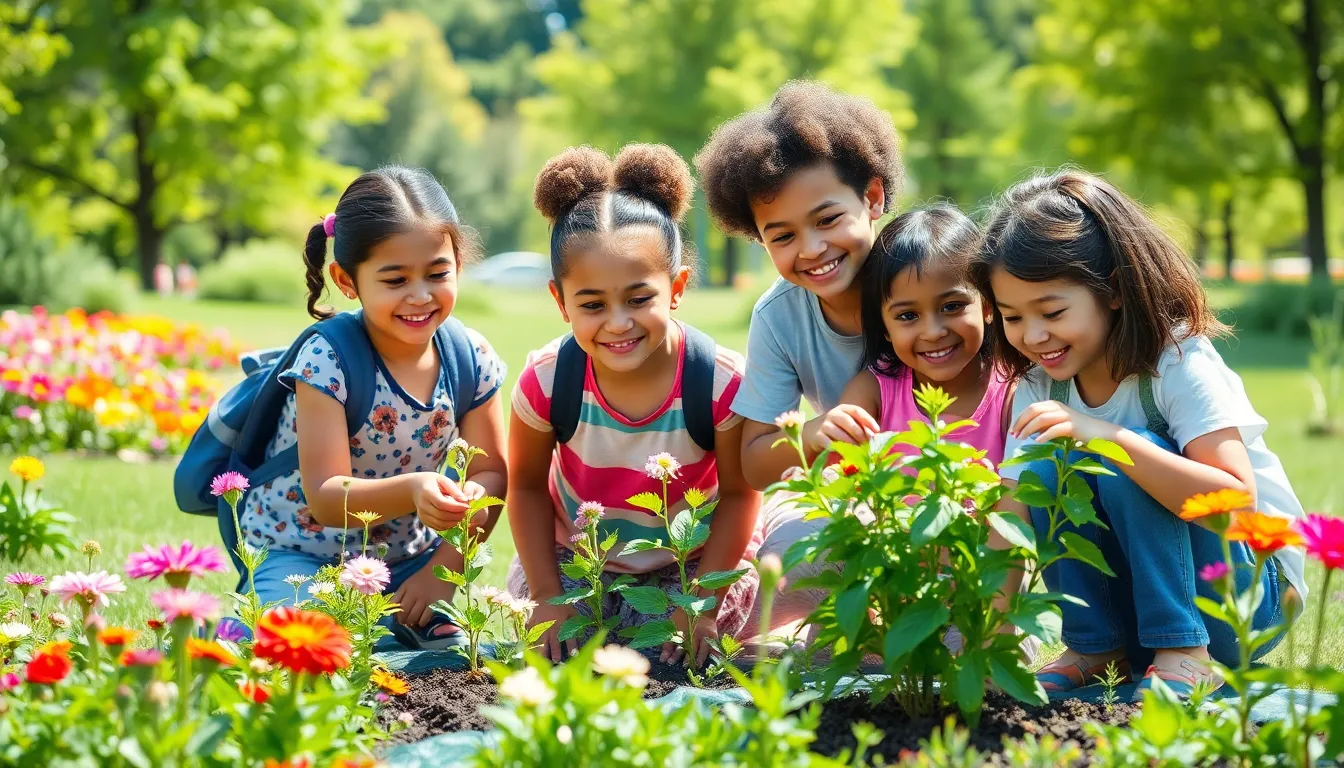
Engaging kids in ecology brings numerous advantages that shape their understanding of the environment and their role within it. Through active participation in ecological practices, children not only learn about nature but also develop valuable life skills.
Fostering Environmental Awareness
Fostering environmental awareness in children helps them recognize the importance of ecosystems. Children learn about local flora and fauna through hands-on activities such as nature walks and gardening. They become aware of the implications of pollution, conservation, and biodiversity. This awareness encourages children to take pride in their environment and inspires them to protect it.
Promoting Critical Thinking Skills
Promoting critical thinking skills occurs naturally as children engage in ecological activities. Exploring real-world problems, such as habitat destruction or climate change, allows children to think critically about solutions. They analyze data and develop strategies for community projects, enhancing both cognitive skills and emotional intelligence. Engaging in discussions about environmental issues also reinforces their ability to form reasoned arguments and advocate for eco-friendly practices.
Activities to Inspire Ecology Kids
Engaging kids in ecological activities fosters a deep connection to nature while promoting environmental stewardship. Various activities can inspire and educate children about ecology.
Outdoor Exploration
Outdoor exploration immerses children in their natural surroundings, allowing them to experience ecosystems firsthand.
- Nature Walks: Kids observe plants, animals, and geological features. This activity enhances their understanding of biodiversity.
- Bird Watching: Using field guides helps children identify local species, promoting an appreciation for wildlife.
- Nature Journaling: Recording observations encourages attention to detail and reflection on their experiences in nature.
- Waterway Clean-Ups: Cleaning local streams or rivers instills a sense of community responsibility while improving local habitats.
Creative Projects and Crafts
Creative projects cultivate a deeper connection between children and ecological principles through hands-on activities.
- Recycled Art: Using materials like cardboard and plastic bottles fosters creativity and emphasizes the importance of recycling.
- Seed Bombs: Kids can create seed bombs using clay and wildflower seeds, encouraging planting in neglected areas.
- Wildlife Habitats: Building simple birdhouses or insect hotels teaches kids about species needs and conservation efforts.
- DIY Garden Projects: Gardening introduces children to sustainable practices, food sources, and the life cycle of plants.
Educational Resources for Parents and Educators
Parents and educators can utilize various resources to foster an interest in ecology among children, enabling them to learn about the environment effectively.
Books and Literature
Selecting engaging books can cultivate children’s curiosity about nature and ecology. Titles like “The Lorax” by Dr. Seuss teach about environmental stewardship, while “The Magic School Bus: Inside a Beehive” introduces concepts of ecosystems. Non-fiction books like “What If There Were No Bees?” from the “Science Comics” series explain the vital role of pollinators. Additionally, children’s nature journals encourage observation and reflection, enhancing their connection to the environment. Books not only educate but also inspire discussions about ecological responsibilities.
Online Platforms and Games
Online platforms and interactive games offer dynamic ways for children to explore ecology. Websites such as National Geographic Kids feature articles, videos, and quizzes on wildlife and habitats. Apps like “PlantSnap” identify plants and encourage outdoor exploration. Online games, including “Eco,” challenge players to build sustainable communities, promoting critical thinking about environmental management. These digital resources create engaging experiences that foster a sense of stewardship and motivate kids to learn more about their ecological impact.
Nurturing ecology kids is essential for a sustainable future. By fostering a love for nature and encouraging active participation in ecological practices, children develop a sense of responsibility and awareness of environmental issues. Engaging them in hands-on activities not only enhances their understanding of ecosystems but also equips them with critical thinking and teamwork skills.
As they explore their surroundings and participate in community conservation efforts, these young guardians of the planet will be empowered to advocate for positive change. With the right resources and support, parents and educators can inspire the next generation to value and protect the environment, ensuring a healthier planet for years to come.
